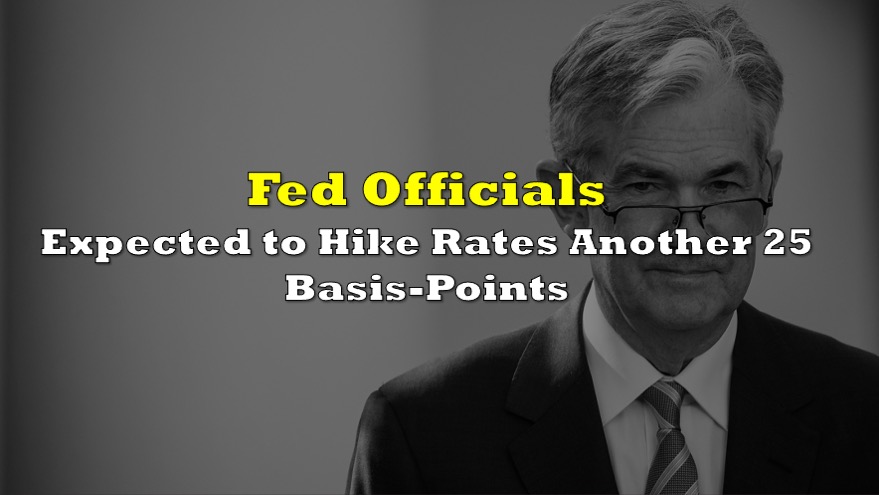The Bank of Canada and its Governor, Tiff Macklem, have found themselves at a crucial juncture.
Amid growing concerns over inflation, the central bank’s key interest rate remained unaltered at 5%, following two rate increments over the summer. While the bank has hiked rates 10 times in the past 18 months to curb spending, encourage supply to match demand, and control rising prices, the governor believes their 2% inflation objective is attainable.
LIVE: Bank of Canada governor Tiff Macklem addresses Calgary Chamber of Commerce
— CPAC (@CPAC_TV) September 7, 2023
➡️https://t.co/tCvOyzqJw8
EN DIRECT : Le gouverneur de la Banque du Canada, Tiff Macklem, s’adresse à la Chambre de commerce de Calgary
➡️https://t.co/9QJRBSOHuM#cdnpoli | #polcan pic.twitter.com/ukSvxRA2ml
In a speech to the Calgary Chamber of Commerce, Macklem conveyed a sense of cautious optimism mixed with a readiness for further intervention. He acknowledged the recent slowdown in the Canadian economy, evidenced by the GDP contraction in the second quarter and the half-a-percentage point rise in the unemployment rate over three months. Such indicators, he explained, affirm the moderating impact of the higher interest rates on spending.

Nevertheless, inflation remains a thorn in the side of the BoC. Despite a decline from its peak of 8.1% last summer to 3.3% in July, core inflation figures— which discount volatile price fluctuations— linger around 3.5% annually. This enduring inflationary pressure, coupled with rising oil prices, suggests a potential upward trajectory for headline inflation in the near future.

The BoC’s current forecast compiled in July predicts inflation hovering around 3% for the next year, suggesting the desired 2% target may only be reached by mid-2025. Macklem reiterated the bank’s commitment to restoring price stability and expressed readiness to hike interest rates further if necessary, emphasizing, however, that they aren’t looking to stifle economic growth.
A significant part of Macklem’s address focused on recent political conversations surrounding the BoC’s methods and goals. The considerable rise in mortgage payments, concurrent with the BoC’s aggressive rate increases, has raised eyebrows. July’s CPI data demonstrated that mortgage expenses had surged around 30% compared to the prior year, becoming the most significant factor contributing to the annual inflation rate.

"All the messaging from the Bank of Canada was that, you know, interest rates would be low."
— Steven Feldman (@WallBayHoweSt) September 7, 2023
Tiff Macklem: “If you’ve got a mortgage you can be confident rates will be low for a long time,” https://t.co/lpBe9y7Ygu
This has led several experts and politicians to argue that the bank is inadvertently fueling inflation, suggesting that the actual inflation might be less than what central bankers are indicating. Finance Minister Chrystia Freeland and some provincial premiers have echoed this sentiment. However, Macklem defended the bank’s decisions, emphasizing that if rates hadn’t risen, the overall inflation would have posed a greater challenge. He also highlighted a core inflation measure, CPI-Trim, which excludes mortgage interest costs and remains close to 3.5%.
Scotiabank economist Derek Holt warns efforts by Canadian politicians — including Finance Minister Freeland — to influence Bank of Canada policy could lead foreign investors to believe BOC decisions are subject to political interference. On WSJ wires: pic.twitter.com/aj3gzQqrXs
— Paul Vieira (@paulvieira) September 6, 2023
Addressing debates on whether the BoC should forgo its 2% inflation goal for a higher target, Macklem remained steadfast, but concluded with an open-ended statement suggesting the central bank isn’t completely shut-off to the idea.
He asserted that merely because the target is momentarily elusive, it shouldn’t be adjusted. While the bank does operate within a 1-3% control range, constantly targeting the higher end would frequently position inflation above 3%.
“Looking ahead, Canadian businesses, households and governments will need to confront some big global forces, including demographic changes, rising geopolitical tensions, climate change and digitalization. Some of these forces could add cost pressures and increase the volatility of prices,” explained Macklem, adding that a growing number of comments have been made to increase the target for inflation once the central bank’s monetary policy framework comes up for review in 2026.
“As with past reviews, we will work hard to analyze how the framework, including the 2% target, has been working and whether it’s the best framework for the future,” he concluded.
Information for this story was found via the BoC and the sources mentioned. The author has no securities or affiliations related to the organizations discussed. Not a recommendation to buy or sell. Always do additional research and consult a professional before purchasing a security. The author holds no licenses.









